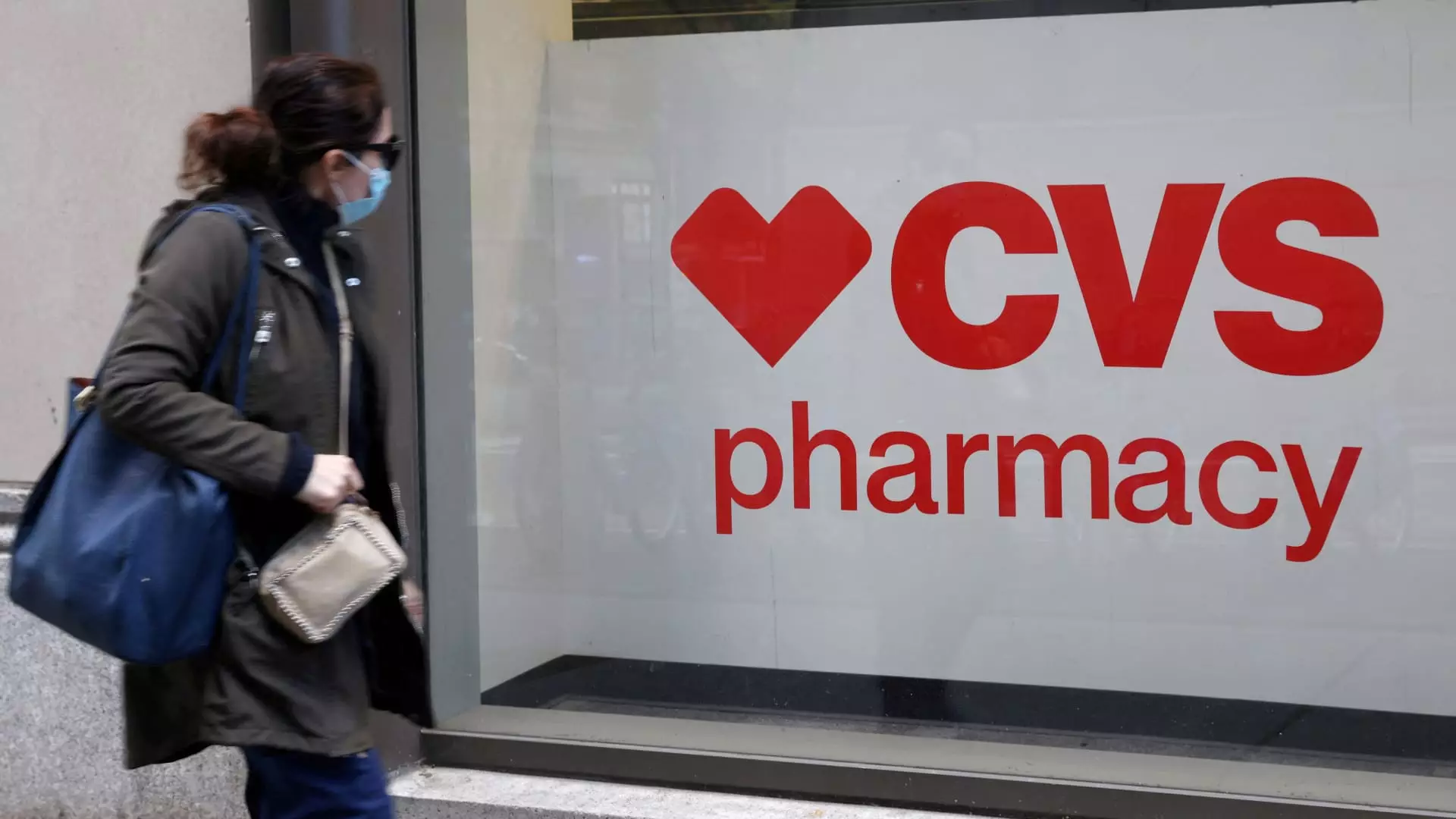In a challenging economic environment, CVS Health has unveiled its third-quarter results, marking a significant moment for the company as it embarks on a new leadership journey under recently appointed CEO David Joyner. Despite a revenue uptick, the company’s profits have taken a hit due to rising medical expenses, raising concerns among investors and analysts alike.
CVS Health’s third-quarter earnings report showcased a complex landscape. While total revenues rose to $95.43 billion—up 6.3% from the previous year—earnings per share fell significantly to $1.09, which was below Wall Street’s expectations of $1.51. This disparity highlights the impact of higher medical costs, particularly in CVS’s health insurance division, Aetna, which faced increased claims as patients sought medical attention for postponed procedures due to the COVID-19 pandemic. Joyner noted the phenomenon, stating, “While the entire industry has seen elevated utilization coming out of the pandemic, we have been more acutely impacted than others.”
The looming uncertainty regarding future medical costs seems to weigh heavily on the company’s trajectory. A spokesperson conveyed that the company refrains from providing a formal outlook for the remainder of the year, suggesting caution is warranted in light of the financial pressures stemming from medical claims. This sentiment mirrors the broader anxiety observed in the healthcare industry, where rising costs associated with insurance claims have become a common theme.
In an effort to restore investor confidence, CVS Health has implemented a series of strategic changes within its leadership. The appointment of Steve Nelson, former CEO of UnitedHealthcare, as president of Aetna is a notable move aimed at stabilizing the insurance arm of the company. With years of experience in the healthcare sector, Nelson’s leadership will be pivotal in steering CVS through these turbulent waters.
Moreover, Joyner emphasized the importance of earning investor trust, stating, “Establishing credibility and earning the trust of our investors is one of my top priorities.” This focus on transparency and measurable outcomes is crucial, particularly since previous projections have been revised downward three consecutive times, leading to considerable skepticism on Wall Street.
Concurrent with the leadership shake-up, CVS announced plans to streamline its operations by trimming costs through layoffs and store closures. An earlier initiative to slash $2 billion in expenses further highlights the company’s commitment to recalibrating its business model, though it also underscores the challenges ahead as CVS seeks to maintain its relevance and profitability in the retail pharmacy sector.
A deep dive into CVS Health’s financial performance unveils further complexities. The company reported a net income of $71 million for the quarter—a staggering decline from $2.27 billion a year earlier. Adjusted earnings reflected a net loss attributed to claims reserves, highlighting that the insurance division’s medical benefit ratio soared to 95.2%. This spike indicates that nearly all collected premiums were utilized for medical claims, raising red flags about the sustainability of the insurance model moving forward.
In contrast, CVS’s pharmacy and consumer wellness sector showed resilience, generating $32.42 billion in sales, driven chiefly by an uptick in prescription volumes. However, leaders acknowledged that pressures from pharmacy reimbursement and an overall decline in front-store sales were dampening results.
Joyner’s emphasis on stabilizing the business operations is imperative as CVS grapples with these challenges. It becomes apparent that CVS’s future will rely heavily on its ability to navigate these operational hurdles while promoting growth in its health services segment, which previously experienced a decline.
Overall, the path ahead for CVS Health is fraught with obstacles and uncertainties. With the new leadership in place, it appears that the company is making deliberate efforts to confront rising medical costs and regain investor confidence. As Joyner and Nelson step into their pivotal roles, they must carry out a delicate balance—steering CVS through immediate financial distress while laying the groundwork for long-term sustainability.
In sum, CVS Health’s future hinges on its capacity to adapt to the evolving healthcare landscape and address the underlying challenges affecting its profitability. Investors and analysts will be closely watching how the company translates its strategic plans into concrete results in the forthcoming quarters.

Leave a Reply